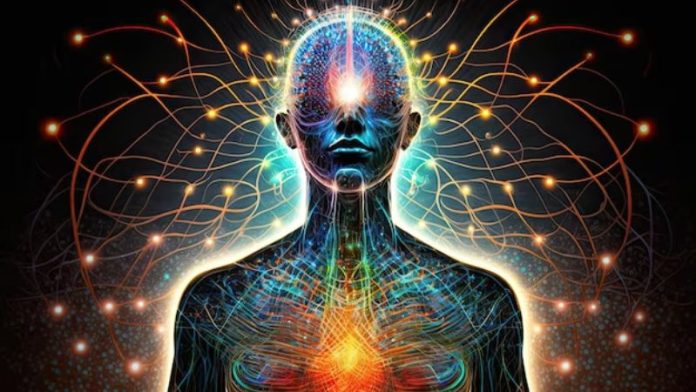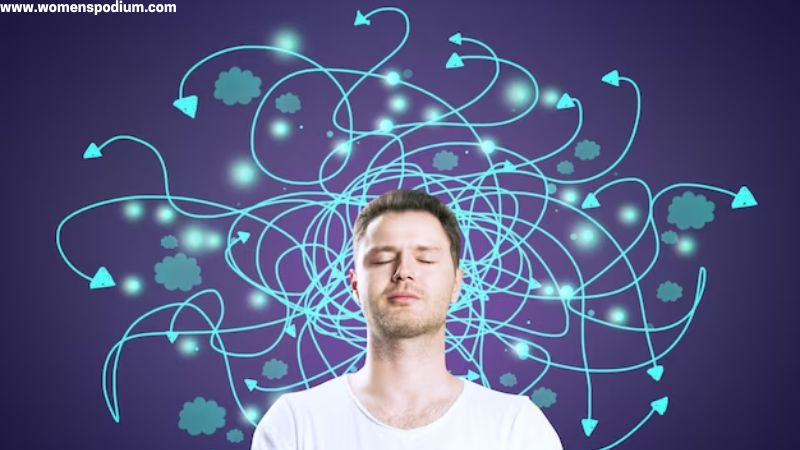
For centuries, people have believed in the mind-body connection. Our physical body, mental, and emotional states are interconnected. What we think and feel affects our physical body, and vice versa. When we get stressed or anxious, our body responds with stress hormones like cortisol, and we experience physical symptoms like headaches, muscle tension, and digestive issues. On the other hand, when we take care of our body’s health through exercise, a healthy diet, and rest, we feel better mentally and emotionally. Our mood improves, and we have more energy and focus. The mind-body connection is not just a theory; scientific evidence supports it. Research has shown that our thoughts and emotions can affect our immune system, cardiovascular system, and even gene expression.
Mind Body Connection Definition

As we all know, the mind and body are interconnected. The link between thoughts, attitudes, and behavior is the mind-body connection. When we understand these emotions, we can improve our health and longevity. Attitudes and behavior have both positive and negative effects on physical health. Most importantly, a good physical body nurtures mental and emotional health and helps in living a good life. This connection is the basis of many holistic healing approaches, such as yoga, mantra meditation, and acupuncture.
Understanding the Body-Mind Relationship

To truly appreciate the mind-body connection, we should understand the complex relationship between our physical body and mind. Our brain and nervous system control our body, sending signals to every part. Our thoughts and emotions are also connected to our nervous system and influence bodily functions. For example, anxiety causes our heart rate to increase and our breathing to become shallow. This is because our body is preparing for a fight-or-flight response.
Similarly, our physical health can impact our mental health. Chronic pain, for example, can lead to depression and anxiety. When we feel physically ill, we may also have trouble sleeping, which can exacerbate mental health issues. By understanding this relationship, we can see how imperative it is to stay healthy physically and mentally.
How Physical Health Affects Mental Health

Physical health and mental health are connected. First, physical illness can impact mental health by causing difficult symptoms. For example, chronic pain, fatigue, and digestive issues can lead to depression and anxiety. When we feel sick or unwell, it can be challenging to maintain a positive outlook and engage in activities we enjoy.
Second, taking care of our physical health can benefit our mental health. Exercise, for example, has been shown to improve mood, reduce anxiety and depression, and increase self-esteem. When we exercise, our bodies release endorphins, which boost our mood. Exercise also helps us sleep better, which is essential for mental health.
Nutrition is another critical aspect of physical health that impacts mental health. A diet rich in fruits, vegetables, whole grains, and lean proteins can reduce inflammation. This has been linked to depression. Eating a diet high in sugar and processed foods, on the other hand, can lead to mood swings and fatigue.
How Mental Health Affects Physical Health

Physical and mental health are not mutually exclusive. Research has shown that mental health issues like depression and anxiety can impact physical health. For example, people with depression are more likely to develop heart disease, stroke, and diabetes. Depression can also weaken the immune system, making it harder to fight infections.
Chronic stress, linked to mental health issues, can also impact physical health. When we are stressed, our body releases stress hormones like cortisol, which causes inflammation. Inflammation is linked to heart disease, diabetes, and cancer.
If we take care of our mental health, our physical health will improve naturally. Meditation, for example, reduces inflammation and improves cardiovascular health. Mindfulness practices like yoga and Tai Chi can also reduce stress and promote mental and physical well-being.
The Benefits of Integrating Physical and Mental Health

Integrating physical and mental health has many benefits. By taking care of both aspects of our health, we can:
- Reduce the risk of chronic disease: Maintaining physical and mental health is essential for preventing chronic diseases like heart disease, diabetes, and cancer.
- Improve mood and reduce anxiety and depression: Exercise, meditation, and other forms of self-care can reduce symptoms of anxiety and depression and improve overall mood.
- Improve sleep: Healthy physical health can lead to better sleep, essential for mental health.
- Increase energy and focus: Taking care of our physical health can help us feel more energized and focused throughout the day.
- Improve overall quality of life: When we feel healthy physically and mentally, we enjoy life and engage in activities we enjoy.
Techniques for Integrating Mind and Body

Integrating physical and mental health requires a holistic approach that addresses both aspects of our health. Here are some techniques for integrating mind and body:
- Exercise regularly: Exercise is not just for physical health; it also has mental health benefits. Aim for at least 30 minutes of moderate-intensity exercise most days of the week.
- Practice mindfulness: Mindfulness practices like meditation, yoga, and Tai Chi can reduce stress, anxiety, and depression and improve overall well-being.
- Eat a balanced diet: Proper nutrition is essential for physical and mental health. Aim to eat fruits, vegetables, whole grains, and lean protein.
- Get enough sleep: Aim for 7-9 hours per night. Getting enough sleep is essential for mental and physical health.
- Practice self-care: Self-care activities like baths, reading a book, or spending time in nature can reduce stress and improve overall well-being.
Holistic Approaches to Health

Integrating physical and mental health also requires holistic health care. By addressing all aspects of our health, like emotional, spiritual, and social well-being, we can improve our overall health. Here are some holistic health approaches:
- Practice gratitude: Gratitude practices like journaling, listing things you are grateful for can improve your mood and reduce stress.
- Connect with others: Social connections are essential for mental health. Make time to connect with friends and family regularly.
- Spend time in nature: Spending time in nature reduces stress and improves overall well-being.
- Practice spirituality: Spirituality can mean different things to different people. It could involve meditation, prayer, or simply quiet reflection.
The Role of Nutrition in the Mind Body Connection

Nutrition plays a critical role in the mind-body connection. A healthy diet plan high in fruits, vegetables, whole grains, and lean protein can reduce inflammation, which is linked to depression. On the other hand, a diet high in sugar and processed foods can lead to mood swings and fatigue.
In addition to eating a balanced diet, some specific nutrients can impact mental health. For example, omega-3 fatty acids from fish, walnuts, and flaxseed reduce depression and anxiety symptoms. Vitamin D, found in sunlight and fortified foods like milk and cereal, is also essential for mental health.
Conclusion
The mind-body connection is a powerful concept that can help us achieve optimal health and well-being. Maintaining physical and mental health reduces chronic disease risk, improves mood, and increases energy. Techniques like exercise, mindfulness, good nutrition, and consistent sessions with a psychologist in Dubai can help us integrate mind and body. In addition, holistic approaches like gratitude, social connections, and spirituality can help us address all aspects of our health. By prioritizing the mind-body connection, we can live healthier, happier lives.
Also Read: Also Read: You will have to master the art of multi-tasking as you have to manage time while applying for a visa.





